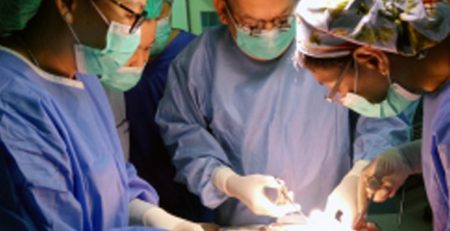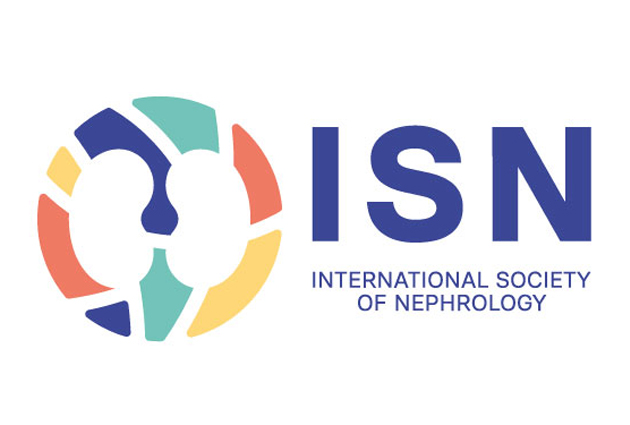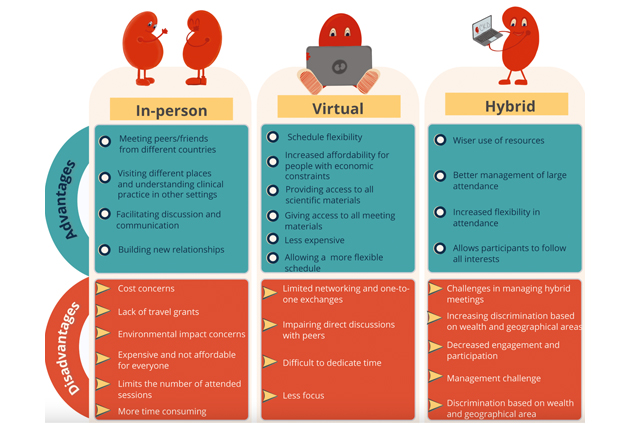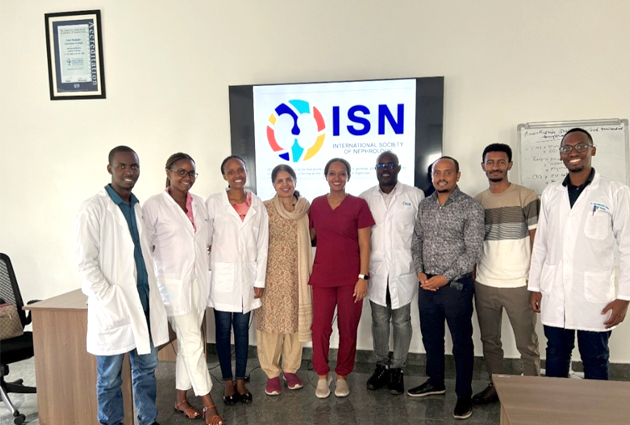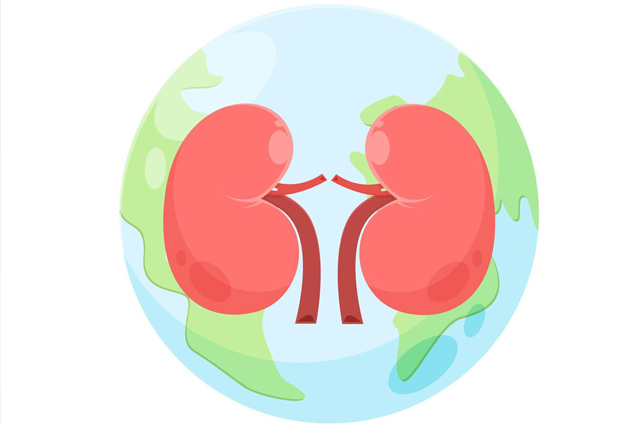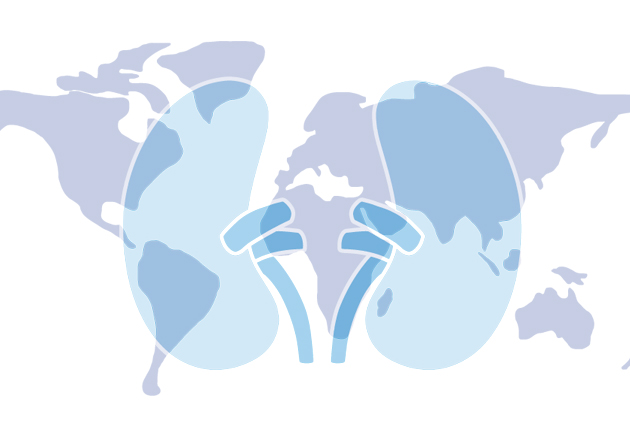ISN support for sustainable peritoneal dialysis in Haiti
The ISN Educational Ambassadors Program and Saving Young Lives recently joined forces to set up a workshop to help develop a sustainable peritoneal dialysis (PD) program at the Faculté de Médecine et de Pharmacie, Université d’Etat in Haïti.
Dr. Judith Exantus worked on creating a dialysis and pediatric acute kidney injury (AKI) course, which successfully took place in Port-au-Prince in January.
The course was held in French including lectures and hands-on training sessions, focusing on PD catheter placement and management using an experimental model.
The practical training was restricted to five groups of four participants, selected by the Educational Ambassador according to their position, commitment to nephrology, future perspectives in the specific domain.
According to the Educational Ambassador’s report, there are currently four private and one public hemodialysis (HD) units in Haiti, all in Port au Prince. Since 2002, the Internal Medicine Ward of State University Hospital opened its own hemodialysis unit with six machines and presently 34 chronic patients are treated. All these patients are treated with one or two sessions per week, due to consumables constraint.
In a private center, the weekly average cost of three hemodialysis sessions is USD 600. In the public setting, the cost varies from USD 66 to 460. But considering the number of stations compared to the number of patients in the public setting hospital, usually patients are under-dialyzed with one to two sessions per week.
Even among huge problems of economic constraints, this HD continues to be the only renal replacement therapy available to chronic and acute patients.
The workshop revealed a crucial need for a PD program in the country. HD is provided to AKI adult patients but not to small children. Human resources are available but there are organizational, economic and political problems to solve before structuring the activity.





